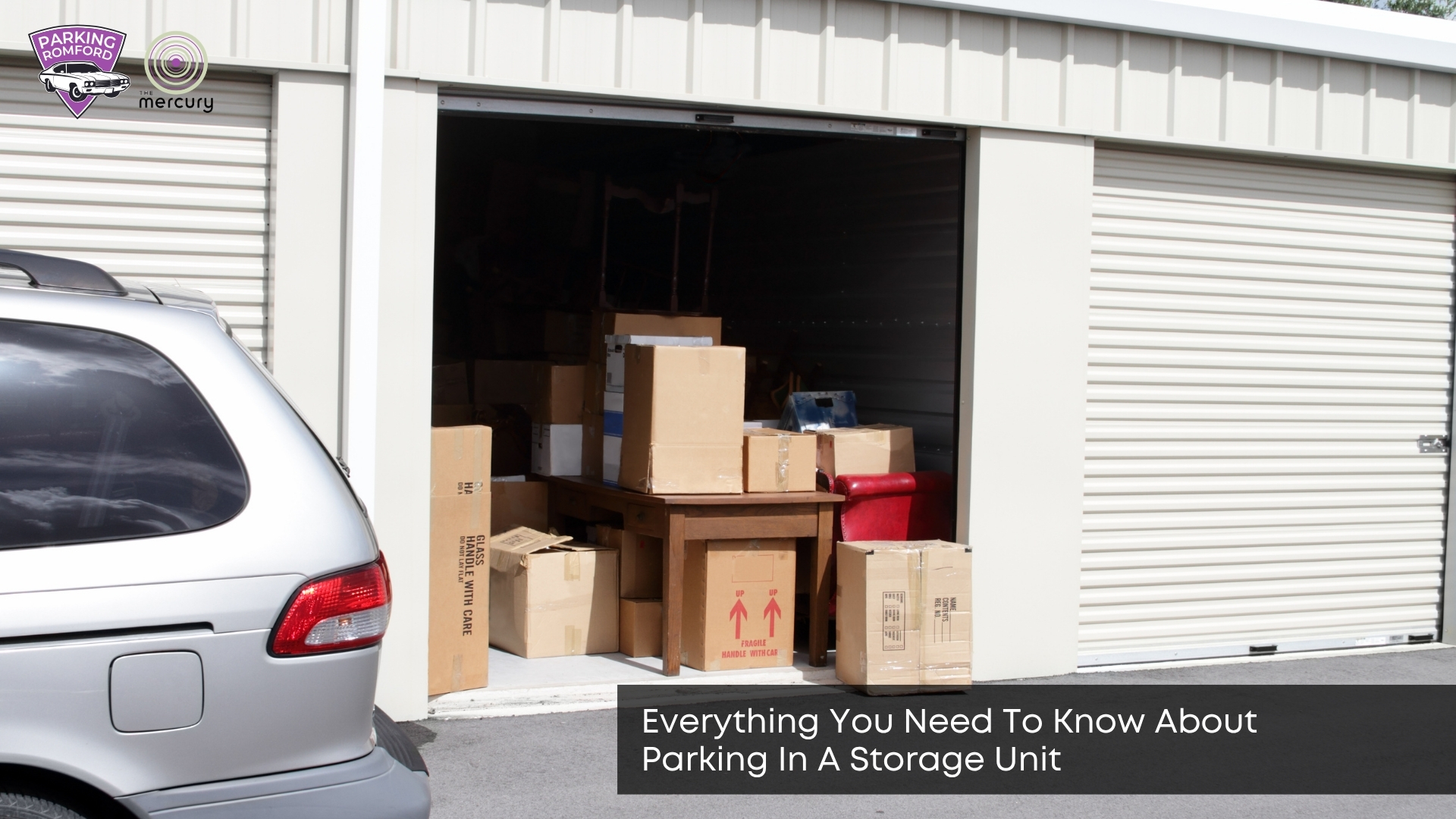Parking in a storage unit may sound unusual, but it’s becoming more popular across the UK. Many drivers use them to keep their cars safe, especially when they are not in use for extended periods of time. Whether you’re storing a classic vehicle or need off-street parking, it’s worth knowing how it works. This guide breaks everything down, allowing you to decide if it’s the right choice. Let’s start by explaining what parking in a storage unit means.
What Does It Mean to Park in a Storage Unit?
Parking in a storage unit means placing your vehicle inside a rented indoor storage space, typically designed for household or business items. These units offer protection from weather and theft, providing drivers with peace of mind when leaving their car unattended. They’re popular for classic cars, seasonal vehicles, and long-term storage needs. Some facilities even offer drive-up units made just for cars. However, before you decide, it’s essential to review the legal requirements surrounding this option.
Can You Legally Park a Vehicle in a Storage Unit in the UK?
Yes, but only if the storage facility allows it and local regulations permit it. Not all self-storage companies accept vehicle parking, and fire safety laws may restrict the storage of petrol vehicles inside certain units. Always check your rental agreement and consult with staff to avoid legal issues. These requirements vary by location, so it’s wise to research in advance. Next, let’s explore the kinds of vehicles typically allowed in these units.
What Types of Vehicles Are Allowed in Storage Units?
Most standard cars, motorcycles, and small vans can be parked in storage units, depending on the size of the space. Some units may also accept scooters, trailers, or vintage cars. Larger vehicles, such as caravans or motorhomes, often require outdoor or specialist storage instead. Facilities will also require vehicles to be insured, taxed, and have their fuel drained in some cases. That’s why choosing the right storage unit involves more than just checking if it fits.
What Should You Check Before Choosing a Storage Unit for Parking?
You should check the unit size, ventilation, access hours, and the facility’s rules regarding vehicle storage. Inquire whether the site has CCTV, alarms, or gated entry for enhanced security. It’s also worth checking the contract terms, especially if you plan to store your car for several months. Price and location will matter too, but security and suitability come first. Once you’ve chosen a unit, the next step is to get your car ready for storage.
How Do You Prepare Your Car for Storage Unit Parking?
To prepare your car, clean it inside and out, top up the fuel tank, check the fluids, and disconnect the battery. Inflate the tyres properly and consider placing them on jack stands to avoid flat spots. A breathable car cover can help protect the paint, especially in dusty environments. When storing for long periods, consider changing the oil to reduce the risk of corrosion. After preparation, ensure your car physically fits the unit.
Are There Size Limits for Parking in a Storage Unit?
Yes, storage units come in various sizes, and not all will suit your car’s dimensions. A small car may fit in a 10×15-foot unit, while larger saloons or SUVs might require a 10×20-foot or larger space. You should always measure your car and compare it to the unit’s internal space. Make sure there’s enough room to open doors and walk around the vehicle. Size matters—but security is just as important for peace of mind.
How Secure Are Storage Units for Vehicle Parking?
Storage units can be very secure if the facility has robust safety measures in place. Look for sites with gated access, security staff, lighting, cameras, and personal padlocks. Some even offer indoor access-only corridors, which reduce the risks of vandalism or theft. Insurance is a valuable extra layer of protection. But just how safe is it to leave a car for months at a time?
Is It Safe to Leave a Car in Storage Long-Term?
Yes, if your car is well-maintained and the storage facility is reputable, long-term storage is generally safe. Many owners store classic or seasonal vehicles for months or even years without issues. Just make sure to check on the vehicle periodically, if possible. Some facilities may allow periodic visits for maintenance or engine checks. Apart from safety, many people also use these units for their benefit.
What Are the Benefits of Parking in a Storage Unit?
The main benefits include protection from weather, reduced risk of theft, and flexible rental options. You also free up space at home, especially if you don’t have a driveway or garage. It’s ideal for people who travel often, or who own more than one vehicle. Long-term value can outweigh short-term costs for many drivers. Still, it’s good to weigh up potential drawbacks before making a final choice.
Are There Risks or Downsides to Using a Storage Unit for Parking?
Yes, there are a few. Some risks include limited ventilation, fire hazards, and extra costs for insurance or prep. Not all facilities are transparent about rules, which can lead to unexpected problems. You may also not have regular access to your car, depending on the opening hours. For these reasons, the cost is another key point to consider. If you’re weighing your options locally, this Romford car parking advice can help you make a more informed choice.
How Much Does It Cost to Park a Car in a Storage Unit?
Prices vary widely based on location, size, and added security features. In the UK, it can range from £50 to over £200 per month, depending on the region. Larger vehicles or climate-controlled units will incur higher costs. Always compare at least three local storage providers before making a decision. In some cases, a traditional car park may be a better fit.
When Is It Better to Use a Traditional Car Park Instead?
A traditional car park is better when you need short-term, easy-access parking at a lower cost. If you use your car daily or weekly, storing it in a remote unit can be a hassle. Public or private car parks also come with fewer prep steps and often allow flexible pay-as-you-go options. For longer stays in town, all-day car parking in Romford could offer a more accessible and cost-friendly alternative.
What’s the Best Way to Choose the Right Storage Option for Your Car?
The best way to decide is to match your car’s needs with your usage habits, storage length, and budget. If you’re storing for weeks or months and want high security, a storage unit is ideal. For quick access or daily use, a regular car park may suit you better. Check the legal requirements, prepare your vehicle properly, and compare facilities in your area. With the right plan, parking your car in a storage unit can be a straightforward and stress-free process. If you’re also thinking about structure and long-term resilience, this durable car park flooring guide covers another layer of smart parking planning.


Leave a Reply